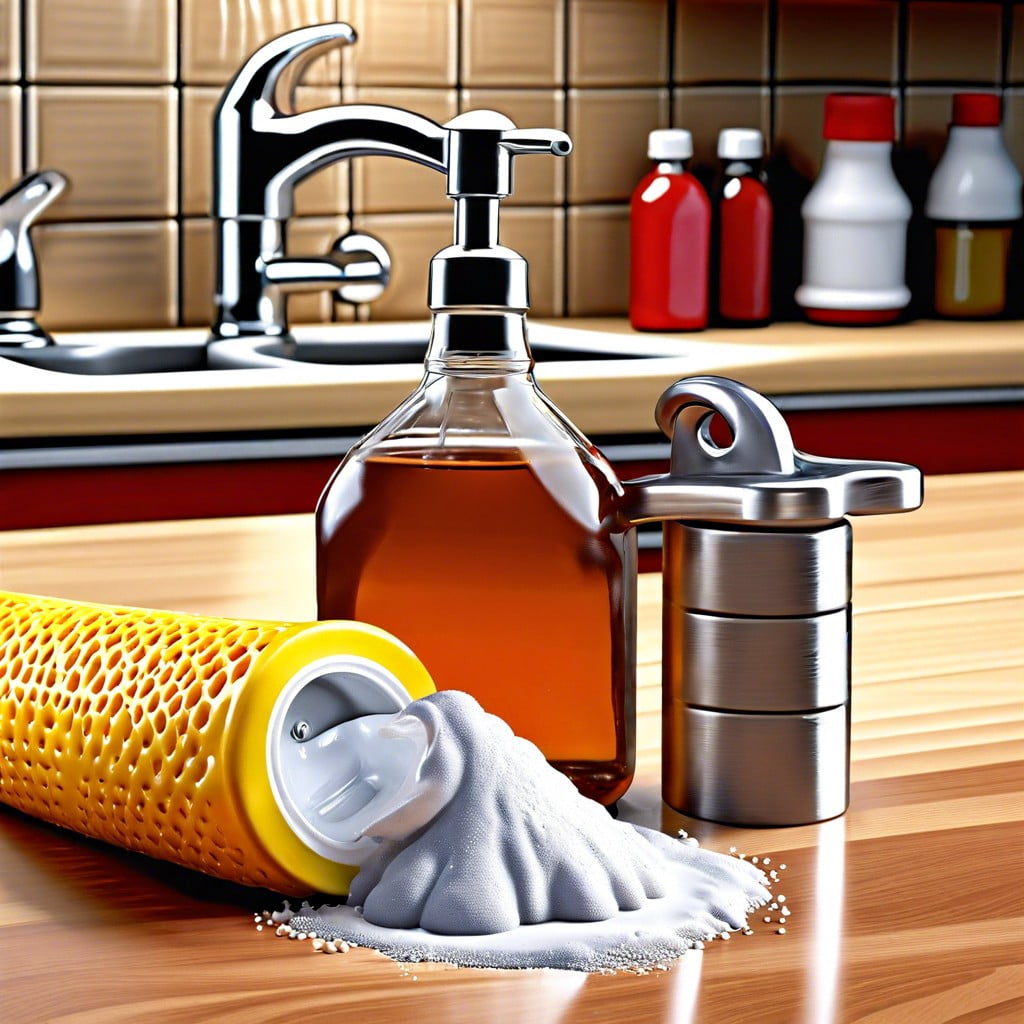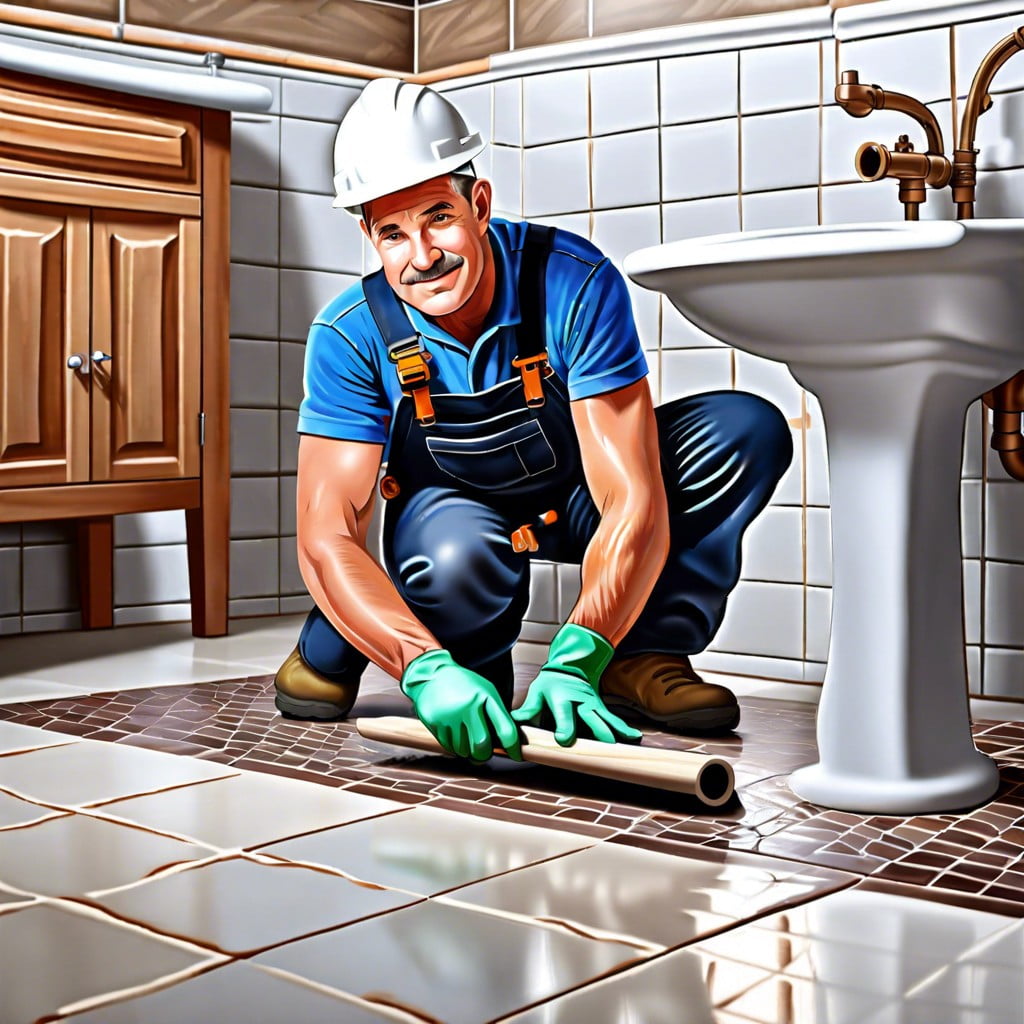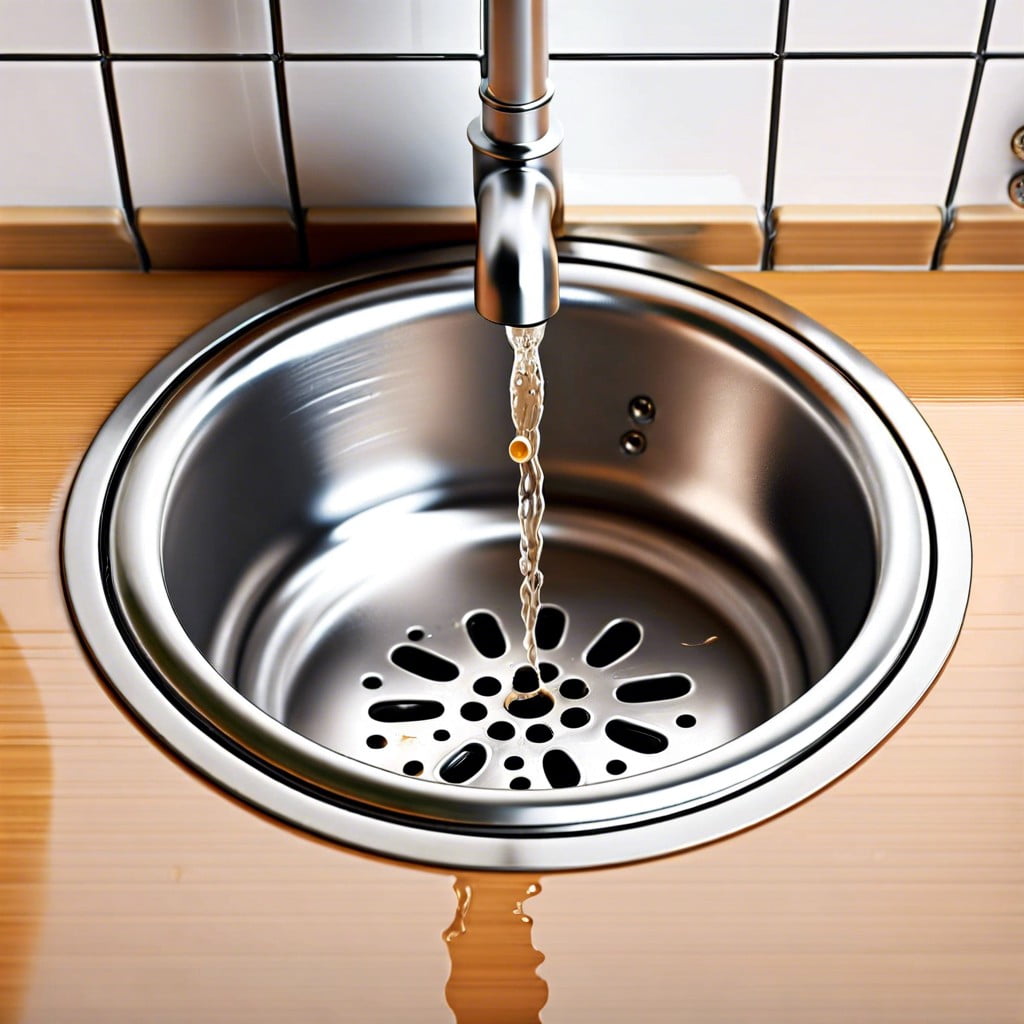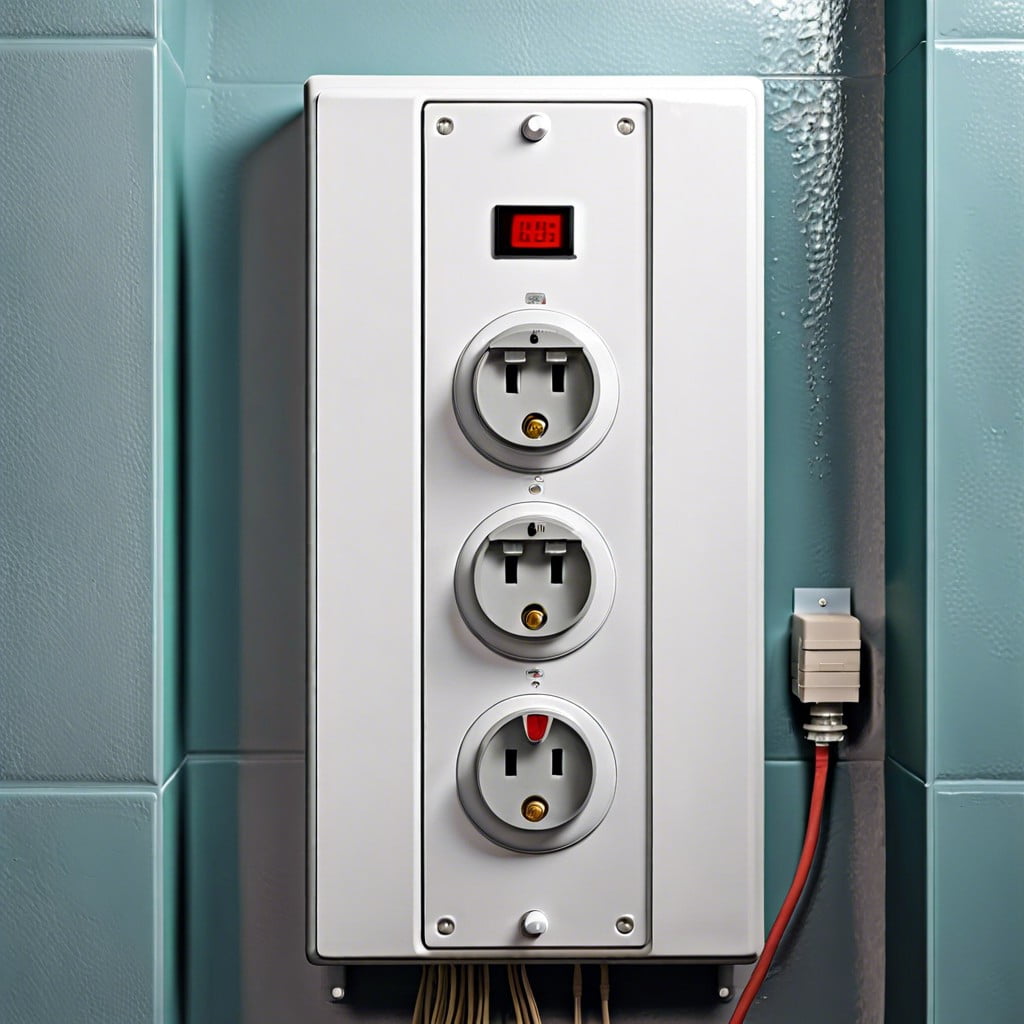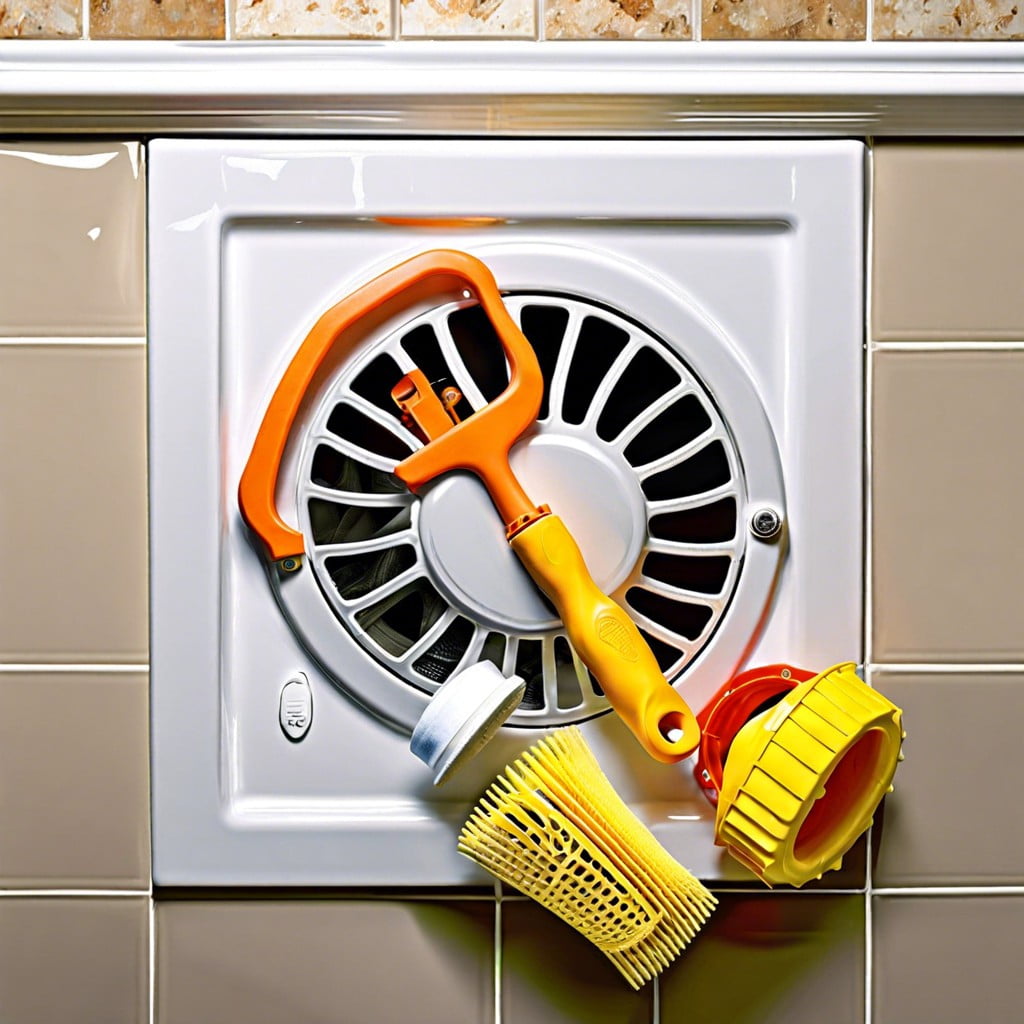Last updated on
Discover simple and effective methods for keeping your sink drain free from clogs and odors with practical steps you can implement right now.
Key takeaways:
- Consider sink type and severity of clog before cleaning.
- Gather baking soda, vinegar, plunger, plumber’s snake, gloves, and more.
- Boil water, use baking soda and vinegar, unclog mechanically, try enzyme cleaners.
- Regularly flush with boiling water and use a strainer to prevent clogs.
- Follow safety precautions when handling chemical cleaners or tools.
Before Getting Started
Preparation is paramount in tackling a clogged sink drain. Before reaching for your cleaner, consider the type of sink and its material—stainless steel, porcelain, or other. Not all cleaning agents are universally safe, and using the wrong type could result in damage. Additionally, assess the severity of the clog; a minor blockage may only require a simple solution, while a severe clog could necessitate a more robust approach or professional help.
Always wear gloves and have proper ventilation in the area to avoid inhaling fumes from chemical cleaners. Finally, clear out any standing water and remove debris that can be easily reached, setting the stage for a more effective cleaning process.
What You’ll Need
Gather the following essentials to tackle that clogged sink drain effectively:
- Baking soda and white vinegar, a dynamic duo for a non-toxic cleaning method that’s surprisingly potent.
- Boiling water, the unsung hero for flushing and loosening minor blockages without any chemicals.
- Plunger, preferably a flat-bottomed one, to create pressure that can dislodge whatever is despising you from below.
- A plumber’s snake or a wire coat hanger, which can be your best allies in fishing out stubborn clogs without dismantling your pipes.
- Wet-dry vacuum, if available, because sometimes suction is more effective than pressure in clearing a path.
- Gloves to protect your hands from the grime and potential hazards of the task.
- A bucket or a small container for catching any water or debris that might escape when you’re working under the sink.
These tools and materials offer an effective armory against the murky depths of a blocked drain without resorting to harsh chemicals or expensive professional interventions.
Instructions
Begin with a simple boil: Pour a pot of boiling water down the drain to loosen any accumulated sludge.
Harness the power of baking soda and vinegar: Dump a cup of baking soda into the drain, followed by an equal amount of white vinegar. The effervescent action aids in dislodging stubborn gunk. Plug the drain and wait for an hour before washing it down with more hot water.
Unclog mechanically: For more obstinate clogs, use a plunger or plumber’s snake. If using a plunger, seal the overflow hole first for maximum pressure. For a snake, gently feed it down the drain until you hit the obstruction, then twist and pull.
Opt for enzyme cleaners: Enzyme-based cleaners work by breaking down organic matter in the pipes. These are safer alternatives to harsh chemicals and are better for the environment.
Prevent future clogs: Regularly flush your drain with boiling water, and consider fitting a strainer to catch hair and other debris before they cause problems.
Safety Precautions When Cleaning Drains
Vigilance is paramount when handling chemical drain cleaners; they contain harsh substances that demand respect. Don gloves and goggles to protect skin and eyes from splashes.
In terms of environmental safety, employ natural alternatives like vinegar and baking soda which are less harmful to our waterways.
Avoid mixing chemicals, as this can cause dangerous reactions. Ensure good ventilation to fend off potential inhalation of toxic fumes.
If using a plunger or drain snake, proceed with caution to avoid back splash or damage to pipes.
Always read and adhere to product instructions for safe and effective usage. Remember, in case of uncertainty, seeking professional help is a wise choice for personal safety and the integrity of your plumbing.
Recap
